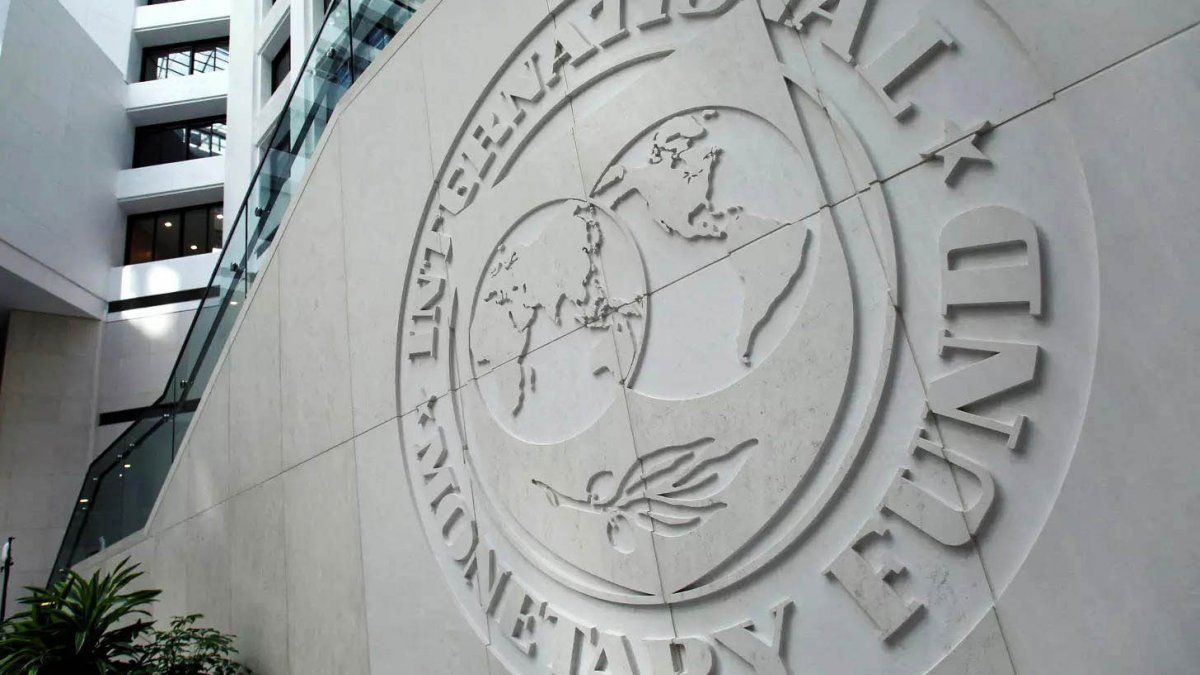The teams of the International Monetary Fund and the Argentine government “They have been interacting for several weeks in a very active and constructive way. And as I mentioned, the authorities are here and that commitment has continued,” said Rodrigo Valdez, director of the Western Hemisphere of the organization in a conference given this Friday in Washington.
consulted by Scope in relation to the conversations between the head of the IMF, Kristalina Georgieva and Gita Gopinath with the minister, Luis Caputo and his team, Valdez responded: “As a matter of our policy, we do not reveal the conversation between (Argentine) authorities and (IMF) management.” But, he did mention that the Argentine government authorities (who are in Washington) remain committed” to carrying out the negotiations.
Finally, and in response to another journalistic query, he stated that “I have delegated the Argentine case to Luis Cubeddu, as you know, and I really have nothing more to add about it.”
The IMF removed from the negotiations with Argentina to the head of the Western Department, the Chilean Rodrigo Valdésand remaining in the hands of Luis Cubeddu. This measure was taken by the multilateral organization in response to the complaints of “bias and conspiring against the country” that the president made at the time. Javier Milei.
For his part, Cubeddu began his presentation by thanking Valdez “for their deep trust in this complex and important case. “Obviously this is a team effort, involving the Western Hemisphere technical team as well as other departments.”
liliana fmi.jpg
He stressed that in the meeting yesterday (Thursday) between Georgieva, Gopinath, Caputo and Santiago Bausili (head of the BCRA) “we highlighted the important progress that has been made, particularly in reducing inflation and establishing a very strong fiscal anchor,” he said. the person responsible for the Argentine case.
Cubeddu recalled that “we now have nine months of primary surpluses and global balances under our belt.” He also explained that “this has allowed an improvement in the Central Bank’s balance sheet, as well as the strengthening of international reserves from extremely low levels.”
Challenges
However, the official warned that “In those conversations we also emphasized that the challenges continue, and that sustaining what has been achieved so far will require policies to evolve and properly balance domestic, external considerations and external objectives.
In this order and in relation to exchange rate policy “We discussed the need for a gradual dismantling of some existing restrictions and controls, but obviously this would have to be done in a carefully calibrated way to ensure that the process is orderly.”
These concepts are in line with the statements of both President Javier Milei and the Minister of Economy, Luis Caputo, who, on several occasions, indicated that the lifting of the stocks will be carried out “without taking risks and when the conditions are met.”
Program
Cubeddu avoided giving details regarding the negotiations that are being carried out with the economic team, although he indicated: “Our teams continue to work closely with the Argentine authorities. Discussions have deepened in an effort to better and fully understand their plans in the coming period. “The engagement we are in is taking place in the context of the current EFF.”
Likewise, he confirmed that ““The (Argentine) authorities are also exploring options for a new program.”
Finally, he stated that “our hope is that we will be in a position to provide a little more information in terms of the strategy of the rapprochement negotiations in the coming weeks.”
It is worth remembering that this Thursday the Minister of Economy along with members of his team were received by both the head of the IMF and her deputy.
Through the networks, both officials highlighted the progress made in economic matters. Kristalina celebrated: “The stabilization of its economy while supporting those most in need.” Meanwhile, Gopinath praised: “the impressive reductions in inflation and the fiscal deficit, along with efforts to support the most vulnerable.”
Source: Ambito




